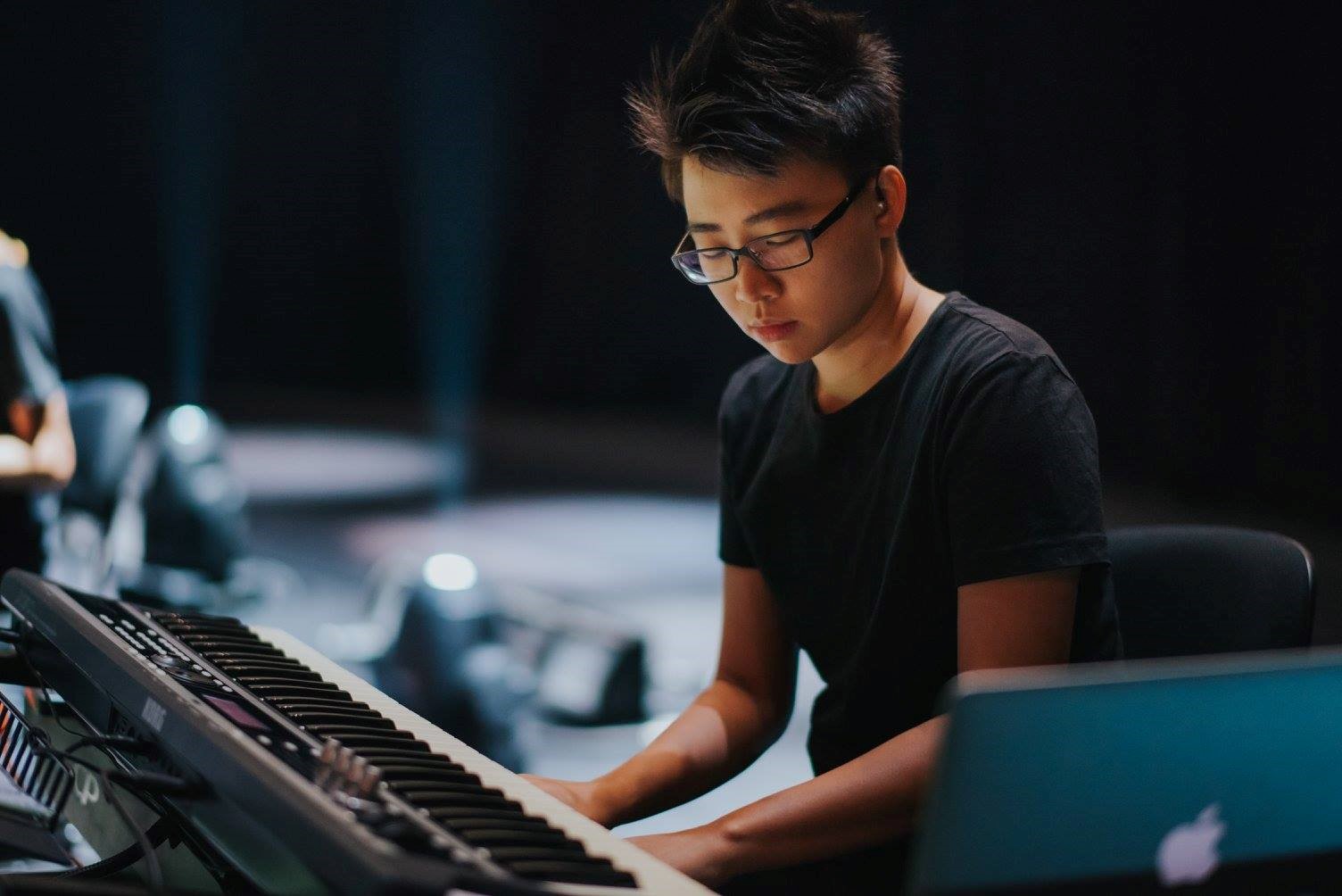Find out what other useful tips you need to excel in the creative industry
Let’s get to know Huang Peh Linde, a Founder and Music Director at Studio Two-Three. Studio Two-Three is also an alumni of *SCAPE Creative Fellowship, an accelerator programme that equips Singapore’s most promising young entrepreneurs and startups in the creative and innovative space with the knowledge and skills necessary to take their ideas and innovations to the next level.
First of all, what does it mean to be a Music Director?
Music making does not take up a lot of my time on an average work day. It is usually a very focused period of 1 to 2 hours. Ear and mental fatigue is real, and this conscious choice enables me to remain objective about my work. More of my time is actually spent on communication with clients, conceptualising and planning.
As a Music Director, you would minimally need an overall broad knowledge of the entire music production process. The more skilled you are at each segment, the better it would be. This aids in your understanding of how everything comes together; how music works with other artforms which helps you communicate your craft better.
What did your path into the creative industry look like? What are the three skills/traits that are highly sought after in the industry?
I knew my goal was to make a sustainable living out of music but I did not know how to go about achieving it. I took small steps, big leaps at times, and made decisions based on my abilities at that point in time. I am still on a journey and constantly learning.
I believe paper qualifications are important. Prospective clients may not know much about music and hence the paper can give you some credibility. More importantly is that during the process of attaining that piece of paper, you learn. You learn the fundamentals, you learn the limitations of your knowledge and understand that there are many things out there that you do not know.
If paper qualifications are important, life skills are probably 10 to 100 times more important. For example, if you want to make music only for yourself, it’s very easy! But if you want to make music for other people – you need to learn how to make your music relatable, which communicates to people’s needs. How people see you (professionalism) is also very important.
I may be wrong, but my opinion is that you do not need to be ‘creative’ to make it in the creative industry – you can also simply be ‘technical’, because there are people that cannot tell the difference and not every project requires creativity. However, like in every industry out there, in order to excel and thrive, the essence lies in whether you are able to see the connections (creativity) and bring value in a way that other people do not.
As a Creative, you draw your inspiration from many sources. Who and what inspires you and if it is a place, where do you go to stimulate your creative juices?
Being in nature inspires me the most because it clears my mind and puts me in a good mood, allowing me to be more receptive and sensitive when I do music. I also meditate for clarity. Music is just a small portion of life so basically, enjoy living and anything can become an inspiration.
If you can describe your creative style and approach in a few adjectives, what would it be?
Natural, instinctive, independent.
Spill the tea, what tips or resources would you suggest for youths interested in the industry to be exposed to?
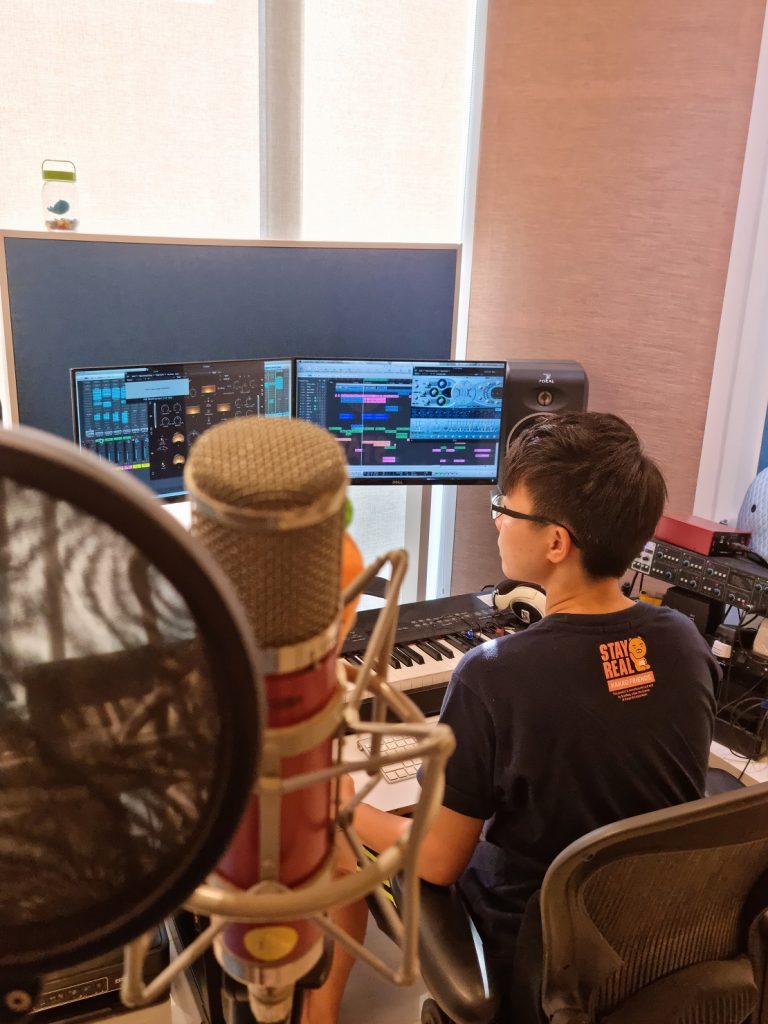
Understand yourself – what you are good at and what you enjoy. Music or any form of creative work is simply a tool that gets you to where you want to be. Seeking mentorship and advice from experienced mentors can potentially shortcut your journey by years. I suggest having an open mind and building complementary knowledge from various fields outside. By doing so, it would get your overall understanding to a different level.
It was a tough year for the creative industry back in 2020 – it is still now, with the Covid-19 situation. How have you been managing Studio Two-Three and what are the key learning points for startups/companies in the same industry?
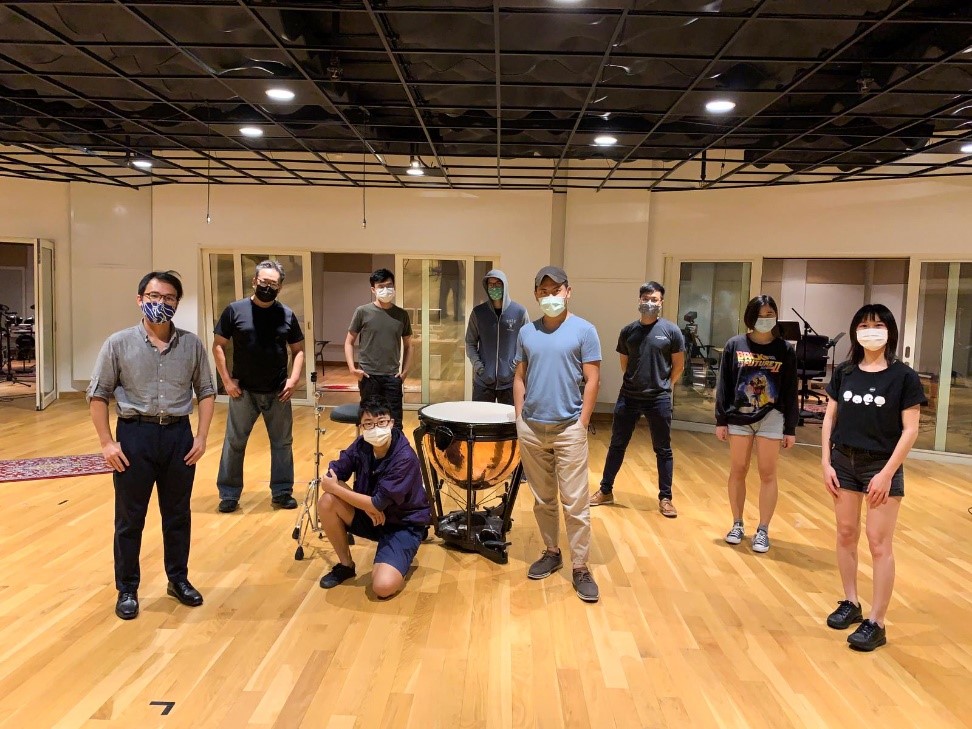
We are very lucky in the sense that because of Covid-19, more people saw the need to create digital content and with the help of many government grants, we actually got more work to do. It is just that the nature of work has shifted slightly.
A project done during the 2020 CB period, with the Inclusive Arts Movement.
The key learning point for everyone would be that anything outside the scope of your imagination could happen. Thus, there is no point counting successes because past success does not equate to future success. Cashflow, a focus on sustainability and continuous evolution to stay relevant are more important.
How has *SCAPE benefitted you and your growth as a young entrepreneur?
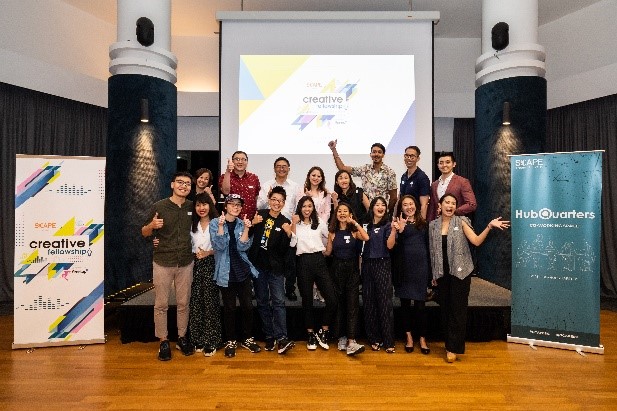
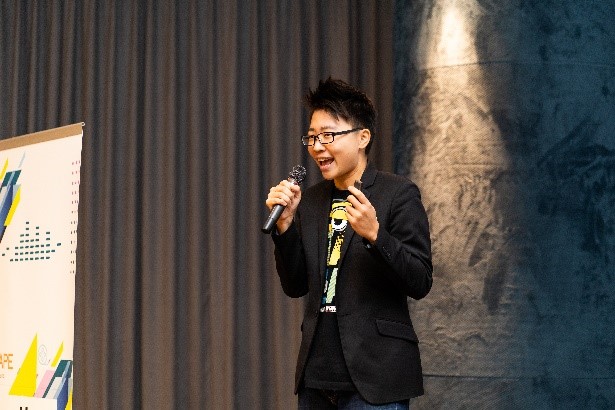
*SCAPE has always been very supportive of what I do. *SCAPE brings the community together and through this, I was able to make many meaningful connections. The *SCAPE Creative Fellowship has also given me a fresh perspective in managing my business better.
Check out how you can be part of *SCAPE Creative Fellowship.
What is the biggest milestone for Studio Two-Three?
Recent music composed and produced for Two Four And Six Fusion, a local East-West ensemble.
We are grateful to every client we have worked with because they have enabled us to do music for more than a decade. We have also started creating music assets for games and they can be found here: Audio & Music Packs for Games.
Get connected with Studio Two-Three
At Studio Two-Three, we love brainstorming and talking about ideas. If there is any way that I could be of value or provide advice, please do find me on LinkedIn or my socials (Facebook | Instagram | YouTube). On a more personal note, I also enjoy life topics and anything amazing within the universe.

